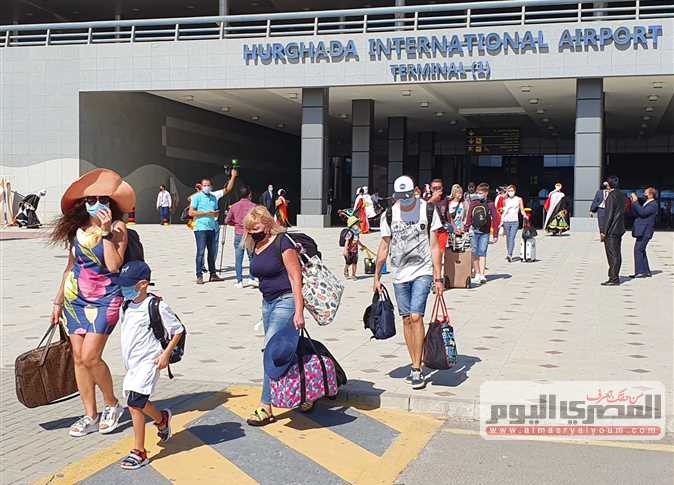LUXOR — When it was first pitched to the National Cinema Center, one of the main selling points of the Luxor Egyptian and European Film Festival was the promise that, unlike previous Egyptian film festivals, it would cater primarily to local audiences; in this case, residents of a city that hadn’t seen a proper, working movie theater in over two decades. According to most announcements made following its creation, the festival would reintroduce the art of film to a population steeped as much in ancient culture as it is in modern woes; lives that would be vastly improved by the equal amounts of joy and sophistication of tasteful cinema.
Fast forward a year and a half later, and Luxor resident Mohamed Samir is clearly excited about the event unfolding in his hometown. “I saw some police escorts go by earlier. There must be some really important people here,” the 23-year-old firearms and ammunition store clerk says to Egypt Independent, before asking, “So, what’s going on? Some sort of political summit?”
That was on the third day of the film festival (17-22 September), and, unlike most of the other shopkeepers on one of the city’s main arteries, Mahata Street, Samir was at least aware of something going on in his town. “A film festival? Why didn’t they tell us,” he asks, reacting with instant curiosity to the news. “What kind of films? Do they have comedies?” When told that popular comedian Ahmed Helmy not only showed up to the opening night ceremony but was also honored at the event for his body of work, Samir expresses disbelief, followed by severe disappointment.
Minutes later, a friend walks in and Samir informs him of the latest local developments. Apparently not an Ahmed Helmy fan, Mahmoud asks about other visiting guests and, upon hearing the names of actresses Ilham Shaheen and Laila Elwy, his eyes widen and he lets out a low whistle. “Let’s go now,” he says. “Where can we get tickets?”
“See?” Samir smiles at Egypt Independent. “This is why they kept their festival a secret from us.”
Festival organizers would undoubtedly argue they haven’t kept anything secret, a claim supported by the six promotional posters lining the street where Samir works. “What, that?” Samir squints from the entrance to his store at the poster hanging near the top of a lamppost across the street.
“I’ve never seen that before, and I’d need a telescope to read what it says.”
Further down the road, 30-year-old Mohamed Abu Samy, who owns a roastery, also claims he hasn’t been able to successfully draw any meaning from the posters, while his neighbor, an elderly Sobia vendor known as Sheikh Moawad remained convinced that the only ones capable of benefiting from the posters were “birds that read English.” None of the three men had noticed the signs before.
In fact, of the 100 vendors, store-owners and pedestrians interviewed in the Mahata area by Egypt Independent over two days, only 14 claimed to have any knowledge of an event taking place in their city, 12 of whom were able to correctly identify it as a film festival. Not a single interviewed resident had seen a festival program, or knew where to get one from, and only two individuals had gone to a screening, having been told to do so by a friend volunteering with the festival.
Contemplating the view from a kiosk overlooking the Luxor Temple, Osama Ahmed questions why the festival “didn’t make the most of these incredible locations. If they really wanted to include the people like you say, why not have something like a parade over in that big empty courtyard by the temple, and invite local musicians, even? It would have been cheap and it would have grabbed everyone’s attention.” He continues to list suggestions until the kiosk’s owner, Alaa ‘al-Bob’ Yehia, interrupts.
“It’s a secret festival, because they don’t want certain people there,” he says, before pointing across the street. “Look at those posters. The only words possible to make out on it are the ones in English.”
It’s not an uncommon theory among those interviewed by Egypt Independent, with three Luxor residents even going so far as to claim that they attempted to attend a screening only to be turned away — although Egypt Independent stresses that these claims, vehemently denied by festival organizers as well as ushers and security personnel at all screening venues, could not be confirmed.
A counter perspective was provided by Abdel Nasser Moneim, the owner of the 100-year-old Aboudi Bookstore, the biggest in Luxor. While Moneim, who only found out about the festival by reading about it on the internet, believes that the organizers could have done a better job advertising to the city’s residents — “they could have at least left some programs or flyers here for me to give out,” he offers — he also seems adamant that it would amount to wasted effort, as “people here lack that sort of sophistication. They watch their movies on television; they won’t respond to things like a film festival.”
“It’ll help them economically, perhaps,” he says. “But don’t expect them to attend film screenings, or anything like that.” While it’s a theory that might sound strange coming from the owner of a bookstore, Moneim is quick to explain that he sells no Arabic-language books as “only foreigners ever come in here.”
Moneim’s hypothesis, however, doesn’t stand up to the actual turnout, with the attendance of local residents at various screenings hovering anywhere between zero and 20 — not necessarily impressive, but still enough to make the bookstore owner doubt his words. And while a number of those audience members admitted to noticing the festival’s propaganda around town, none seemed surprised at the possibility that others had no knowledge of the festival whatsoever. Most common among those interviewed, though, was a sense of disappointment at a somewhat fumbled opportunity.
“This is a town that lives off of tourism,” explains Ramadan Reda, a 58-year-old who has spent most of his life steering horse-drawn carriages through the streets of Luxor. “Anyone who tells you that 70 or 80 percent of Luxor’s residents depend on tourism doesn’t know what he’s talking about. The truth is, we all depend on it, one way or another. So, an event like this festival, coming at a time when the local economy is in need of the smallest boost, is a pretty big deal.”
Like Reda, who regularly stations his carriage outside one of the three hotels housing the festival’s guests and organizers, many of Luxor’s taxi and horse-carriage drivers seem well aware of the festival, if uninterested in its goings on. Even though many of them admit to Egypt Independent that the festival hasn’t brought the level of activity they had anticipated, Reda explains that “[the drivers] are the only ones who really benefit from it, and in some cases, have deals set up with festival organizers and the participating hotels.
This is not the case with the store-owners and vendors in the town’s downtown area, who, according to Reda, “don’t benefit as much because the people who are here for the festival usually end up being preoccupied with the festival itself, and usually move from one specific event to the next,” leaving little time for a downtown stroll, or a marketplace visit. This, Reda claims, “leaves a lot of [residents] feeling resentful.”
Still, Reda understands this resentment, especially as, even from his relatively privileged position, he still believes that “an event like this could have had more resonance, economically. It should have brought more activity, and interest, like the African Film Festival [which also held its inaugural edition in Luxor earlier in the year] did.”
Also sympathetic is festival director Magda Wassef who, halfway into the festival admits to Egypt Independent, “Maybe we didn’t advertise as extensively or intelligently as we could have.”
“We certainly didn’t reach as many people as we wanted to,” she says. “But the first time is always the most difficult.” If things go according to plan, next year’s edition of the festival will make up for these mistakes by offering a variety of workshops and activities to local residents, and ensuring that “everyone feels included.”
This news only pleases Reda, who nods in approval. “Good. Everyone should be able to benefit from something like this. God help them, they’ll put us back on the map, and a film festival is a wonderful thing.” When asked if he plans on attending any screenings next year, he continues laughing. “No. Who’s got time for movies anymore?”




